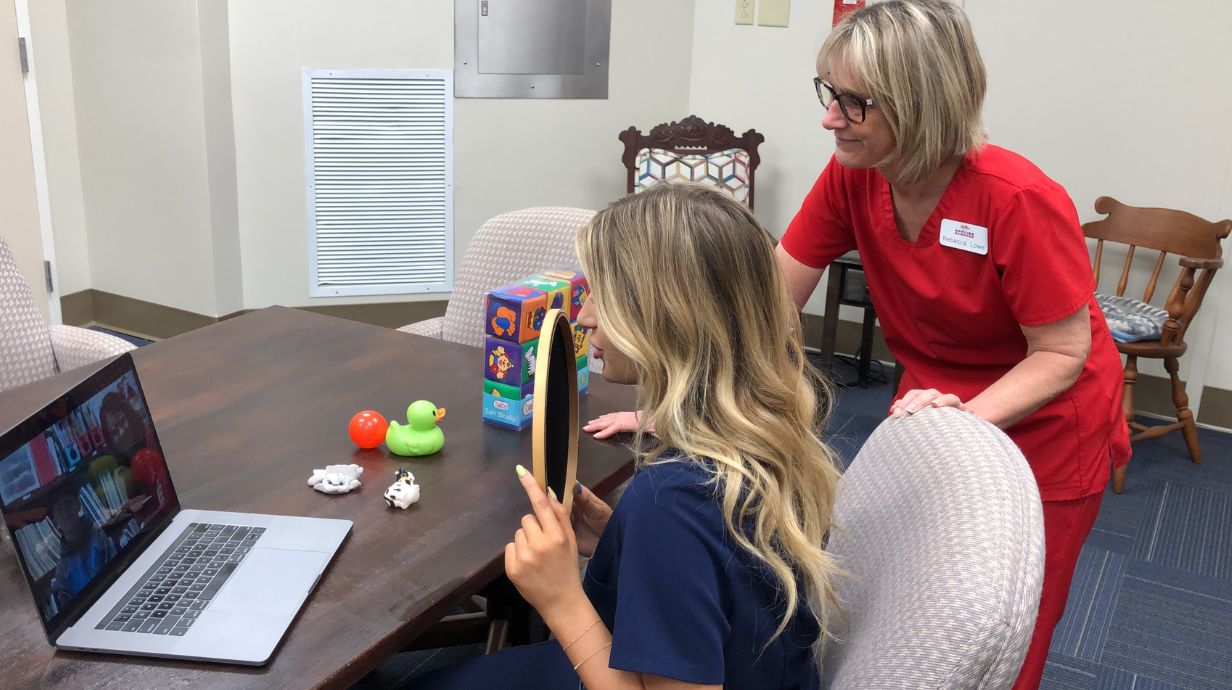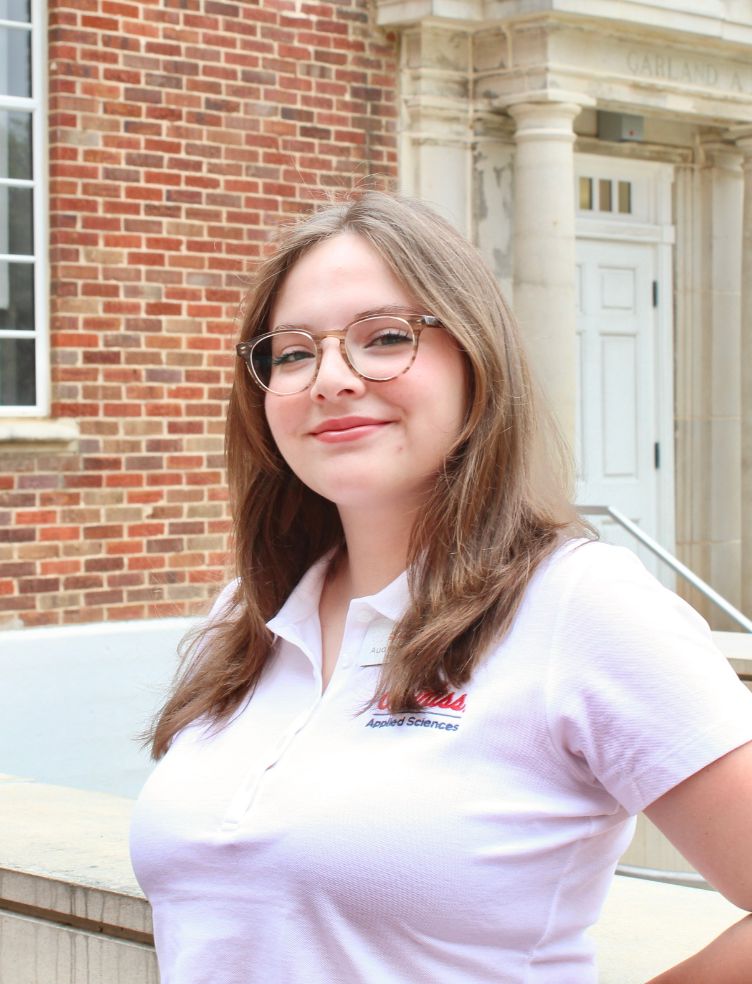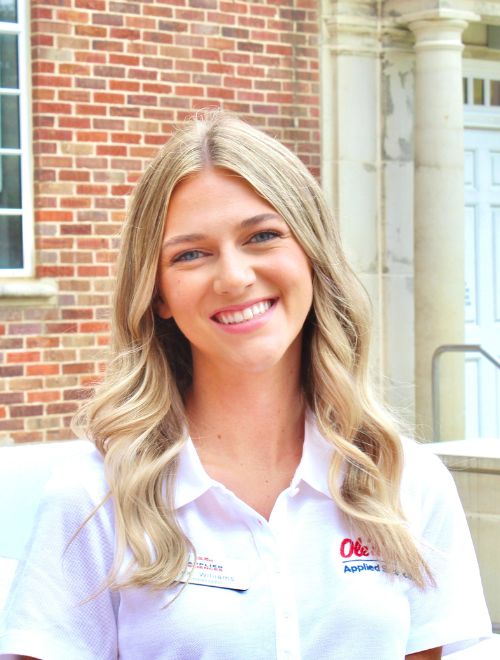Communication Sciences and Disorders, B.S.
When you graduate with a Communication Sciences and Disorders degree at Ole Miss, you improve a person’s ability to communicate and improve their foundation for life.

About the Bachelor of Science in Communication Sciences and Disorders
A degree in Communication Sciences and Disorders offers many exciting opportunities to serve your community. Students that complete a BS in communication science disorders will help individuals with speech, language, or hearing disabilities.
CSD majors learn the anatomy and physiology of speech, language, and auditory processes, and get hands-on experience assessing and managing disorders in speech, language, and hearing.
Coursework will prepare you to work with a variety of communication disorders across the age-span.
The BSCSD is a pre-professional degree.
On this Page…
Program Information
Degree
B.S. in Communication Sciences and Disorders
Emphases
Speech-Language Pathology ;
Audiology
Required Credit Hours
124
Program Type
Major
Minor
School
Duration
4 years
Explore the Minors the Department of Communication Sciences and Disorders Has to Offer
The minor in communication sciences and disorders (CSD) is offered by the Department of Communication Sciences and Disorders in the School of Applied Sciences. The minor can complement many academic majors and provide students from various majors such as allied health care, biomedical engineering, education, general studies, gerontology, legal studies, psychology, psycholinguistics, recreational therapy, special education, journalism, and neuroscience, basic knowledge related to communication disorders. The CSD minor may assist students from various majors to be better equipped to assist individuals with communication disorders.
Core courses include:
- CSD 201: Introduction to Communicative Disorders
- CSD 216: Normal Development of Communication
- CSD 303: Communication Deficits in Older Adults
- CSD 316: Language and Learning Disorder
Students must choose two of the following electives:
- CSD 205: Anatomy and Physiology
- CSD 211: Introduction to Phonetics
- CSD 302: Research Methods for CSD
- CSD 351: Basic Audiology
- CSD 359: Manual Communication
To complete the minor in CSD, students must receive a C or better grade in all of the 18 credits they take. The communication sciences and disorders minor is offered fully online.
The ASL Interpreting minor is an undergraduate, in-person minor. The minor includes three 4-credit courses and a 3-credit practicum totaling 15 hours of undergraduate-level coursework. Courses are offered in fall/spring/summer semesters. The courses in the minor will prepare students to become qualified interpreters for the Deaf. Learners can complete the minor in 20-24 months.
Core courses include:
The ASL Interpreting minor consists of the following courses:
- ASL 311: Advanced American Sign Language (4 hours)
- ASL 400: Interpreting I (4 hours)
- ASL 401: Interpreting II (4 hours)
- ASL 402: Practicum (3 hours)
Students must apply for the minor in American Sign Language interpreting. Before applying, the applicant must complete ASL 111 and ASL 211 (12 hours of prerequisites) or have commensurate skills determined by a level II on the American Sign Language Proficiency Interview (ASLPI) given by course instructors.
A minimum GPA of 3.0 is required for courses counted toward the minor. No course may be repeated more than once, and no more than two courses may be repeated and applied toward the minor. In instances of repeated courses, the second grade will be used to determine eligibility to graduate. The time limit for completing the ASL minor is two years.
Find courses in the Communication Sciences and Disorders degree
Example salary and jobs for communication sciences or disorders majors
Median income for Speech-Language Pathologists in 2022.
Median income for ESL teachers in 2022.
Jobs for ASL interpreters in 2022
Jobs for Audiologists in 2022.
Stay up to date with CSD at UM!
Follow us on Instagram to stay in the know.
View this profile on Instagram
Want to learn more about the BS in Communication Sciences and Disorders?
We are here to answer any questions you may have about a bachelor's in CSD.
Roc Cook
Academic Advisor I
Next Steps
Explore Affordability
We have a variety of scholarships and financial aid options to help make college more affordable for you and your family.
Apply to the University of Mississippi
Are you ready to take the next step toward building your legacy?


